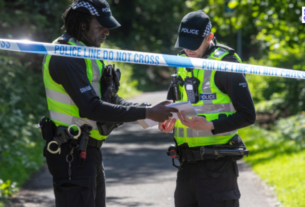The UK government is preparing to inject significant new funding into police forces as part of its upcoming spending review, signaling a shift in priorities toward law and order amid rising public concern about crime. The decision comes after mounting pressure from senior police leaders who warned that years of underfunding have forced departments to downgrade serious crimes and stretch limited resources across expanding responsibilities.
Chancellor Rachel Reeves is expected to announce a real-terms increase in police budgets, locking in sustained support through at least 2028–29. This marks a major pivot from previous years of budgetary restraint and responds to growing demands for visible policing, faster investigations, and more support for victims. The additional funding is intended to stabilize frontline services, recruit more officers, and invest in tools needed to combat both traditional and emerging forms of crime.
Police chiefs have repeatedly raised alarms about the consequences of reduced funding, fewer officers on patrol, longer wait times for investigations, and growing public frustration over crime being deprioritized. By boosting the budget, the government aims to restore public confidence and deliver on its campaign promises, including the hiring of 13,000 new police officers nationwide.
Deputy Prime Minister Angela Rayner and Home Secretary Yvette Cooper have been instrumental in securing the funding increase. They have also pushed for broader social investments that address the root causes of crime, such as affordable housing and better youth services. Rayner, in particular, has lobbied for additional support for local councils and social housing, viewing policing as one part of a wider safety net for communities.
However, the move is not without its trade-offs. To accommodate the police funding boost, cuts are expected in other parts of the Home Office budget, most notably the Border Force. Critics have voiced concern that this could result in delays at airports, reduced immigration enforcement, and strain on customs security. Balancing these priorities remains a political and logistical challenge.
Still, the overall message from Downing Street is clear: policing is back at the top of the agenda. With crime continuing to rank high on voters’ concerns, the government hopes that this financial commitment will not only improve safety but also reaffirm its promise to protect and serve. Whether the cash infusion will lead to long-term change remains to be seen, but for now, Britain’s police forces are finally getting a long-awaited boost.




